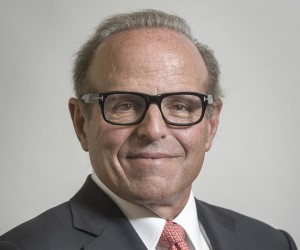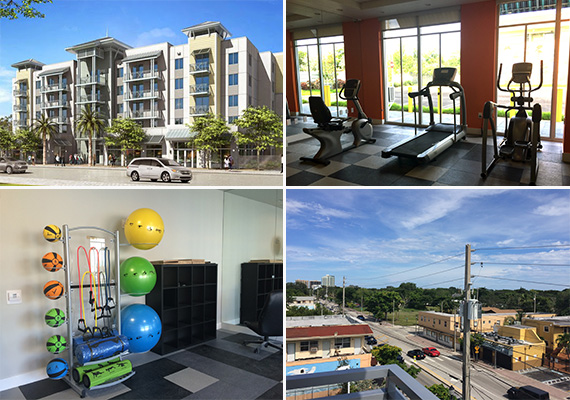Coconut Grove on Wednesday welcomed its first new multifamily project in the West Grove in about 50 years.

Michael Wohl
Pinnacle Housing Group opened Gibson Plaza, a senior housing and market-rate complex on Grand Avenue. The 56-unit project was partially funded by a county bond, Michael Wohl told The Real Deal on a tour of the property last fall. Six of the units are market-rate.
About six years ago, Commissioner Xavier Suarez allocated $9 million in Better Community Bonds aimed at kickstarting development in the west Grove, Wohl said. “Most of our high-rises in our portfolio are built using low-income tax credits,” he said.
While Coconut Grove has seen a bevy of new developments including luxury residential projects and retail on the east side during this real estate cycle, Gibson Plaza is one of the only new developments in the west Grove. Near the bay, luxury residential projects Grove at Grand Bay and Park Grove are underway.
And in the commercial core, the outdoor mall CocoWalk sold to Federal Realty Investment Trust, Grass River Property and the Comras Company with plans to shake up the tenant roster. Across Main Highway, new retail such as Kit and Ace, Büro Group, Harry’s Pizzeria, Panther Coffee and Clyde Butcher gallery joined the newly renovated Engle Building. Properties marketed as development sites, closer to the senior housing complex, have also hit the market in recent months.
Gibson Plaza, at 3629 Grand Avenue, includes a community center, exercise room, library and computer lab, Energy Star appliance packages, and access to on-site education programs provided by Miami Dade College. Pinnacle, in partnership with the Collaborative Development Corporation, the Theodore Roosevelt Gibson Memorial Fund and Miami Dade College (through the Mitchell Wolfson Sr. Foundation), funded the development.
“More than half of the people in Miami-Dade and Broward counties in a certain workforce level are paying 40 percent of their gross income for shelter,” he said. “That’s not sustainable.”
